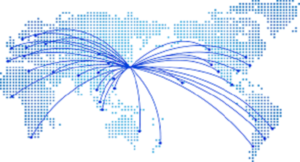 10 UK environmental specialists and others have been awarded prestigious Churchill Fellowships offering a once-in-a-lifetime opportunity to travel the world and research cutting-edge solutions to important topical issues in the environment, conservation and sustainable living.
10 UK environmental specialists and others have been awarded prestigious Churchill Fellowships offering a once-in-a-lifetime opportunity to travel the world and research cutting-edge solutions to important topical issues in the environment, conservation and sustainable living.
Their issues range from marine mammal protection to engaging young people in climate change action, sustainable upland farming to plastic pollution of the oceans. They will use their findings from overseas to inspire positive change in the UK upon their return.
“We are delighted to offer dedicated awards for environmentalists,” said WCMT’s Chief Executive, Julia Weston. “As Churchill Fellows, they will use the inspirational ideas they gather from across the world to become game-changers in their field back home. This life-changing opportunity is open to everyone, with our next round of grants opening on 27 April.”
The award winners are:
Rebecca Walker, a senior environmental specialist from Norwich who will be travelling to South Africa, Canada and the USA to research commercial wildlife watching regulation aimed at protecting marine mammals.
Sophie Eastwood, a charity worker from Edinburgh, who will be travelling to Australia to explore approaches to engaging young people to take action on climate change.
Liam McAleese, from Ambleside, Cumbria, and Head of Strategy and Partnerships at Lake District National Park Authority, who will be travelling to Norway and Sweden to research sustainable upland farming. Liam’s Fellowship is supported by The Frank Jackson Foundation.
David Tudor, a marine scientist from Harringay, who will be travelling to Australia, New Zealand and Tonga to explore strategies to prevent plastic pollution entering the oceans.
Sarah Brown, a marine planning manager from Appin, Scotland, who will be travelling to the USA to investigate public and stakeholder engagement in marine spatial planning.
Alec Taylor, from Cardiff, and Marine Governance Programme Manager at WWF, who will be travelling to Australia, New Zealand the USA to investigate approaches to the protection of marine areas. Alec’s Fellowship is supported by the Lloyd George Foundation.
Pete Boardman, an entomologist from Warrington, who will be travelling to Namibia and the USA to research the taxonomy, identification, and distribution of African craneflies. Pete’s Fellowship is supported by The Frank Jackson Foundation.
Claire Gwinnett, an associate professor in forensic and crime science from Manchester, who will be travelling to Australia, New Zealand and the USA to research microplastic pollution.
Andrew Ormerod, a botanist from Lostwithiel, Cornwall, who will be travelling to Cameroon, Canada and the USA to explore new approaches to plant selection and breeding.
Joel Rees-Jones, a technical specialist in fisheries from Wrexham, who will be travelling to Canada, New Zealand and the USA to investigate strategies for protecting salmon stocks. Joel’s Fellowship is supported by the Lloyd George Foundation.
Together they will receive grants totalling almost £70,000 and travel to 10 countries across four continents. They are among 150 people who were selected this year from over 1,000 applicants to win a Churchill Fellowship to research issues across a range of sectors. The average length of a Fellowship is six weeks.
Churchill Fellowships are open to all UK citizens over 18, and the next chance to apply for a Fellowship opens on 27 April 2018. This year we will again be inviting applications in a special category dedicated to issues around the environment, conservation and sustainable living. Application details are online at wcmt.org.uk.
were set up by public subscription as a living memorial to Sir Winston Churchill on his death in 1965 and have been awarded to over 5,500 people since then. They are awarded by The Winston Churchill Memorial Trust(WCMT), a UK charity.
The aim is to explore global best practice in the issues facing Britain today, and bring back global insights to improve communities and professions across the UK. The Fellowships address contemporary issues, develop knowledge leaders and offer transformative opportunities to outstanding individuals.

